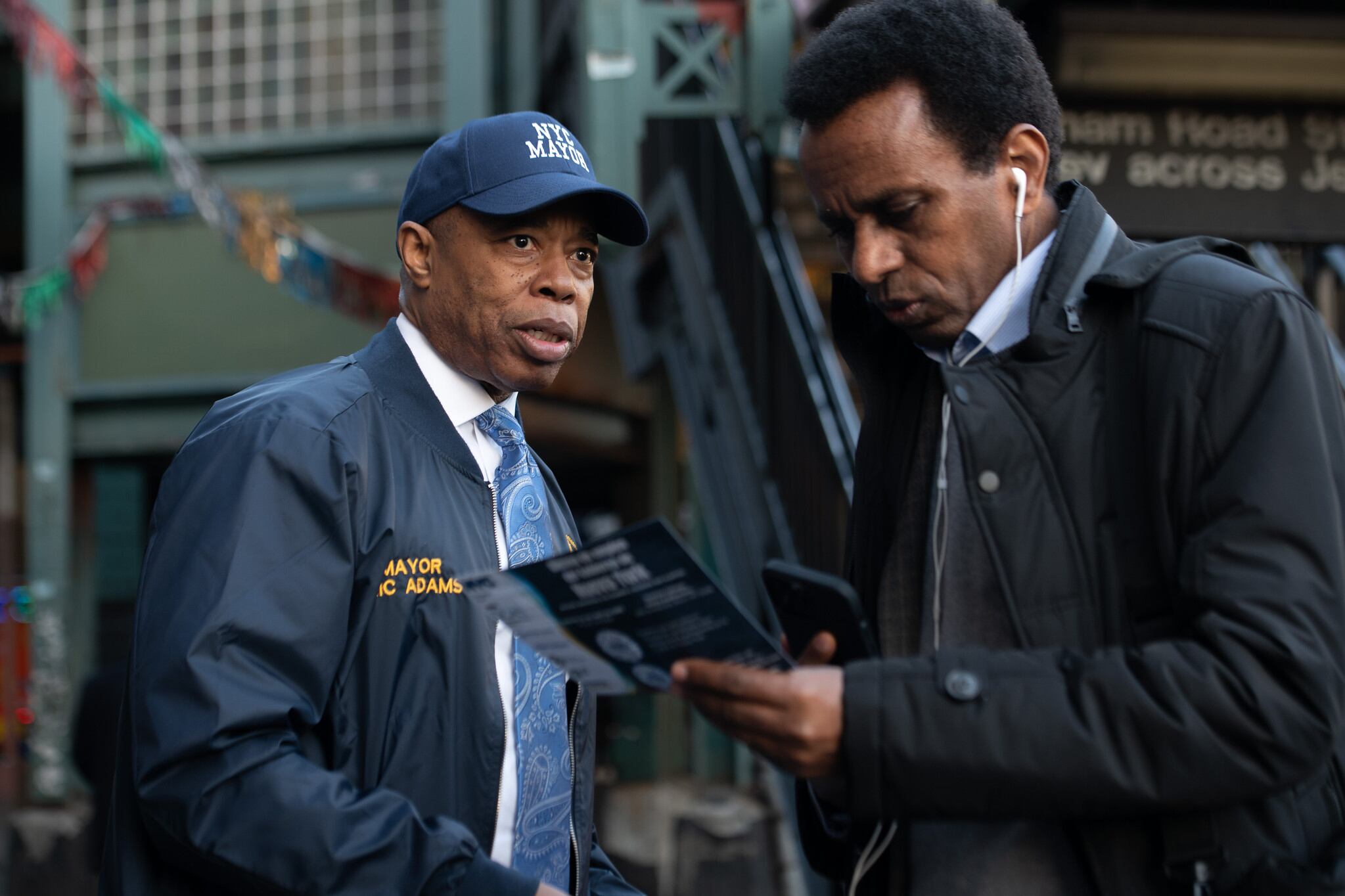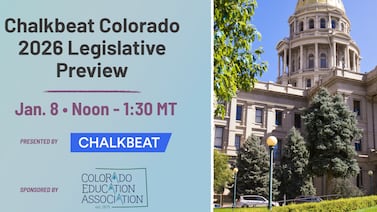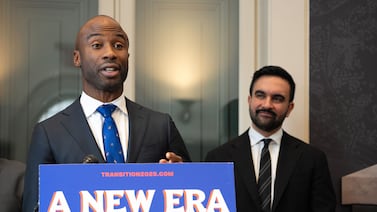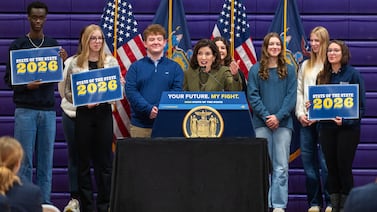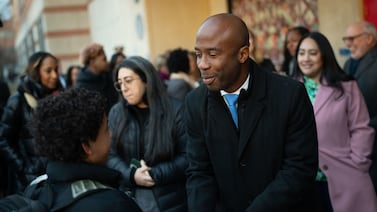New York City public schools will draw more energy from solar panels and provide students with broader climate education and green job training programs.
Mayor Eric Adams touted these developments on Thursday when unveiling his new sustainability plan, outlining dozens of initiatives aimed at alleviating the harmful impacts of climate change and pollution.
By next month, the city expects to have more than 70 solar panel installations on school rooftops, with solar power providing more than 60% of the city’s public schools’ total annual electricity needs, officials said of the initiative that’s been underway for years.
And under the city’s new plan, more New York City students will have opportunities to train for green energy careers.
“While our children are preparing for the future, they’ll be doing it with power from the renewable energy sources of the future,” Adams said. “We’ve seen what climate chaos can do to our city — we’ve all lived through it, from Hurricane Sandy to Tropical Storm Ida — we know that lives are at stake.”
It’s an issue that has resonated with young people across the planet. A 2021 study found widespread anxiety over climate change among people aged 16-25 in 10 countries, including the U.S.
The plan tasks the city with implementing climate education in its classrooms across subjects and grade levels, as well as launching career programs for public school students interested in green jobs.
Those programs will launch by 2024 and offer more than 1,000 students work-based opportunities related to climate and sustainability, building on career readiness pilot programs that began this school year, according to the report.
The city’s efforts to bolster climate education will see the formation of a new teacher leadership team, offering educators climate education training, workshops, and other programs, according to the report.
The nation’s largest school system will also look to electric buses to shepherd students to and from schools. Following a timeline set by the state, New York City will launch a training program for electric school bus operators and develop a fully electric fleet by 2035.
The Climate and Resilience Education Task Force, a coalition of teachers, community educators, students, and environmental groups, issued a statement in support of the city plan.
“Young people deserve a meaningful education that prepares them to address pressing real-world problems, of which climate change is a top concern,” said Ellery Spikes, a high school student and a member of the coalition and the state’s Student Advisory Committee. “Climate education has the potential to empower the next generation of civic leaders and improve the futures of millions of young people.”
Other aspects of the sustainability plan include citywide initiatives like mandatory cooling requirements for new construction, expanded tree canopy cover, flooding resilience infrastructure, congestion pricing, and more. Reporters on Thursday peppered city officials with questions about how they would ensure the goals outlined in the sprawling, near 100-page plan came to fruition.
“When you see a job like this, it materializes,” Adams said, adding his administration has learned from prior mayors and their environmental efforts. “This is a long-term process.”
Julian Shen-Berro is a reporter covering New York City. Contact him at jshen-berro@chalkbeat.org.

